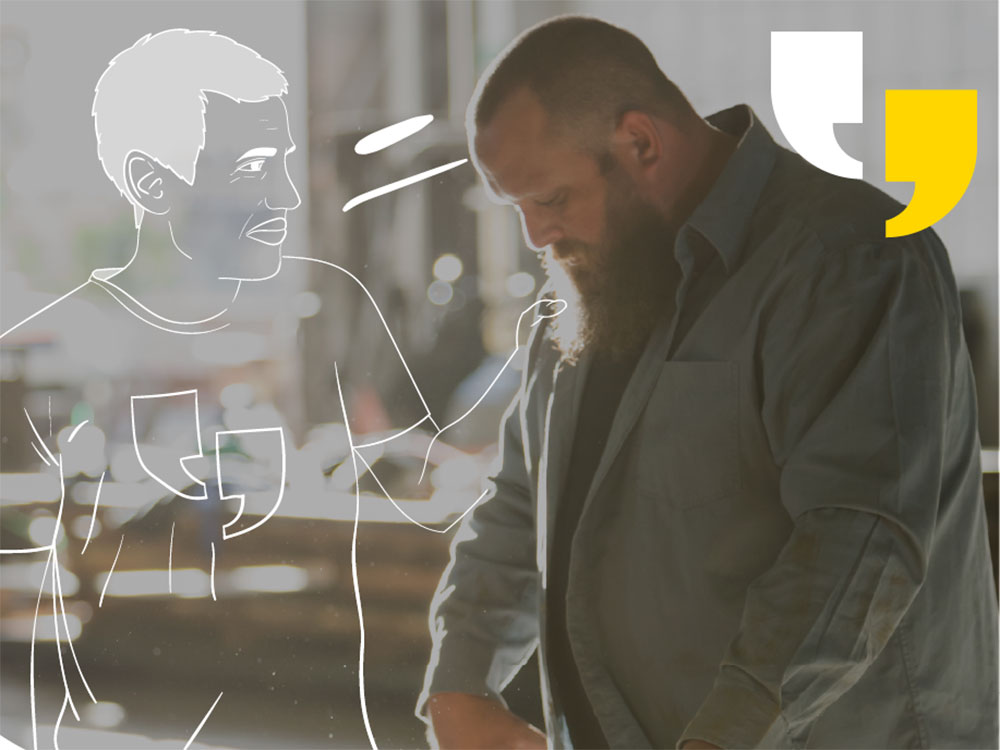A disproportionate number of men in construction, trades and forestry and transportation are dying from illicit drug poisoning. The Tailgate Toolkit harm reduction project, the first of its kind in British Columbia, was created in response to the crisis.
According to the 2022 report “BC Coroners Service Death Review Panel: A Review of Illicit Drug Toxicity Deaths," of the 35 per cent of people employed at the time of their death, half worked in trades, transport or as equipment operators.
Through funding from the Ministry of Mental Health and Addictions, the Canadian Mental Health Association and the Community Action Initiative, the Vancouver Island Construction Association created the Tailgate Toolkit. Initially funded by Island Health as a pilot on Vancouver Island, the program was expanded provincially in January 2022.
“When you’re trying to shift the culture of an industry, which is notoriously slow to adopt ideas and processes, there are some frustrating moments,” said VICA’s CEO Rory Kulmala.
“But I must admit, we were overwhelmed with the appetite of the industry to have the Tailgate Team get out in front of the crews,” added Kulmala.
“Despite those who are adamant that there isn’t a problem within our ranks regardless of the statistics, the diversity of companies participating in our program leads me to believe that most companies recognize this is a problem and wish to be part of a solution.”
Since the January expansion, the program has placed four regional co-ordinators in the offices of B.C.’s regional construction associations, delivering 137 on-site Toolbox Talks to nearly 3,000 members of the construction industry. Through the program’s 16-hour supervisor training course, they’ve equipped 69 leaders with the confidence to recognize, support and refer crew members in need.
From January to October, the Tailgate Team distributed nearly 8,000 individual resources, with region-specific information on mental health services, overdose prevention sites, chronic pain and Indigenous-specific support.
Part of challenging the status quo starts with changing the culture of a company’s leadership team. Through the program’s supervisor training delivered over four sessions, the Tailgate Team company leaders (site, office or ownership) sit down for four-hour sessions exploring the complex issues surrounding substance use and toxic drug poisoning in the construction industry.
“Through feedback received from training participants we can confidently say nearly all our participants’ understanding of stigma related to substance use and the current overdose crisis increased following the training,” said Colby Young, project lead for the Tailgate Toolkit. “This is extremely important, as recognizing the barrier that stigma presents is necessary in creating an environment in which folks are comfortable seeking help.”
“The training opened my eyes to some of the stigmas that are out there," said one participant. "But also reinforced my belief that with positive feedback and support people can rebound from anything that is detrimental to their and others well-being. Because truly no one suffers alone. There is always someone who cares and is suffering through a loved one or colleagues’ issues.”
Supervisor training also features a panel of expert guest speakers, including lawyers, pain specialists and folks specializing in Indigenous perspectives.
“Often participants are unaware of the employer's duty to accommodate,” Young explains. “When an employee discloses that their alcohol or substance (illicit or non-illicit) use is negatively impacting their ability to work, having two practicing lawyers explain the responsibilities of both the employer and employee is really valuable.”
The Tailgate Team is eager to continue to work with site leaders and on-site workers and continue to educate those just beginning their journey into the trades. Since February 2022, the regional co-ordinators have been speaking directly to classes at local trade colleges about substance use, mental health and pain management.
“The workshops have gone really well based on feedback from students and faculty. Of all the presenters we bring in, the harm reduction workshop is one of the best,” said Ron Perkin, Pipe Trades Foundation program leader at Camosun College in Victoria.
“I’m always impressed at how engaged students have been by asking questions and sharing their experiences and stories.”
If you’d like to learn more about the Tailgate Toolkit, visit their website. ![]()
Read more: Health, Rights + Justice, Labour + Industry
This article is part of a Tyee Presents initiative. Tyee Presents is the special sponsored content section within The Tyee where we highlight contests, events and other initiatives that are either put on by us or by our select partners. The Tyee does not and cannot vouch for or endorse products advertised on The Tyee. We choose our partners carefully and consciously, to fit with The Tyee’s reputation as B.C.’s Home for News, Culture and Solutions. Learn more about Tyee Presents here.

















Tyee Commenting Guidelines
Comments that violate guidelines risk being deleted, and violations may result in a temporary or permanent user ban. Maintain the spirit of good conversation to stay in the discussion and be patient with moderators. Comments are reviewed regularly but not in real time.
Do:
Do not: